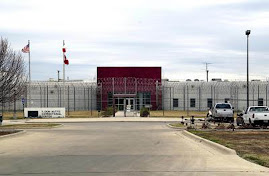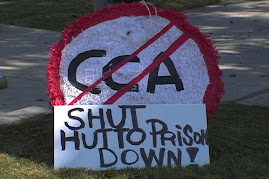Washington, D.C., July 28, 2009 - The Rapporteurship on the Rights of Migrant Workers and their Families of the Inter-American Commission on Human Rights completed a week of visits to various types of U.S. immigration detention facilities in Arizona and Texas. The purpose of the visit was to gather information from detention officials, detainees and civil society organizations regarding immigration enforcement, detention, and due process issues in the United States. ...
From July 20th to the 24th, a delegation from the Rapporteurship visited two unaccompanied minor shelters, a family detention facility, three adult detention facilities, and met with various representatives from civil society organizations focused on U.S. immigration issues. The delegation, headed by the Rapporteur, Felipe González, visited the Southwest Key Unaccompanied Minor Shelter (Phoenix, Arizona), the Florence Service Processing Center (Florence, Arizona), Pinal County Jail (Florence, Arizona), the T. Don Hutto Family Residential Center (Taylor, Texas), the Willacy Detention Center (Raymondville, Texas), and International Education Services (IES) Unaccompanied Minor Shelter (Los Fresnos, Texas). The Rapporteurship’s delegation also met with representatives of civil society organizations focused on immigration issues in Arizona and Texas. ...
Family Detention
The delegation observed that the physical conditions and services at the T. Don Hutto Family Residential Center have improved since the initiation of a class action lawsuit in 2007. The Rapporteurship, however, is concerned that it required a lawsuit and ultimately a settlement agreement to bring the physical conditions and services to their current levels. The Rapporteurship took note that the judge’s July 2009 monitoring report on the settlement agreement found the Government and the Correctional Corporation of America (CCA), the Government’s privately-contracted service provider for the family detention center, only recently came into compliance on at least one of the requirements under the Settlement Agreement – nearly two years after it went into effect. It was reported to the delegation that the Settlement Agreement is set to expire at the end of August 2009. Given the slow compliance by the Government, the improvements gained under the Settlement Agreement, including more transparency in parole assessments, may deteriorate absent monitoring.
More importantly, the Rapporteurship is concerned by the Government’s broad use of detention for asylum seekers and their accompanying minor children. The Government reported that over ninety percent of the families at the Hutto family detention facility are asylum seekers and their children. While the services at the Hutto facility have improved considerably, the detention of asylum seekers and their children in the manner observed is not in compliance with the principle of the “best interest of the child” to be in the least restrictive environment or with the principles applicable to the detention of asylum seekers under international law. Asylum seekers are fleeing persecution in their country of origin and the psychological impact of detention on the asylum seekers and their children is detrimental to their well being. The Rapporteurship observed an example of an alternative to detention in the Austin, Texas area that allows asylum seekers and their children to live in a home environment while their cases proceed. The Rapporteurship was troubled to receive reports that the Government was still considering the possibility of opening three more family detention facilities. ...
They go on to express grave concerns regarding adult detention, the custody of unaccompanied minors, and the local enforcement of federal civil immigration laws. They note that "frequent sub-contracting of the staffing for the facilities to private correctional service companies create significant obstacles to providing immigrant detainees care that comports with their basic human rights." The Rapporteurship also noted the remote location of adult detention centers created staffing difficulties, which prevented adequate provision of basic medical care, food services, and so on. Further, they criticized the use of solitary confinement to "protect" vulnerable populations (e.g. homosexuals, those with mental illness, other minorities), noting that this measure "effectively punishes the victims." And while Maricopa County's now infamous racial profiling and detainee abuses drew their attention, as well, the Rapporteurship noted that local law enforcement have used coercive tactics to force noncitizens to sign immigration-related documents, without legal counsel.
As in last week's meeting with the IAHCR delegation, it is clear that human rights abuses cannot be reduced to isolated incidents, rogue guards or police officials, nor accidents of geography. Rather, it the toxic combination of private--and unaccountable--prison corporations, a tacit acceptance of rights-infringement for noncitizens, and criminalization of civil immigration violatings that allows these abuses to continue.








